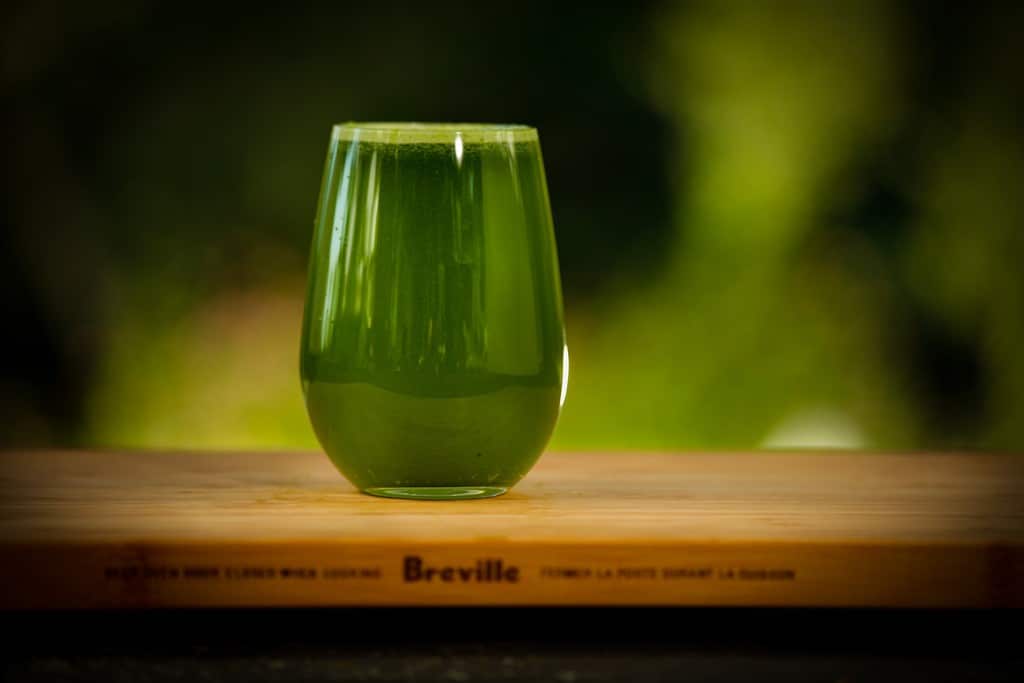Is juicing bad for those with blood sugar issues?
That’s a question I recently got from one of our clients and followers, Maggie Shea. I know this is a concern for a lot of people, so thanks for bringing this up, Maggie.
If you have blood sugar issues, here’s my advice: You want to avoid juicing fruit.
In fact, you should avoid fruit juice altogether, even if it comes in a bottle or a carton. The same thing goes for when you’re eating out—if you see fruit juice on the menu of your favorite restaurant, don’t even think about ordering it.
Why Fruit Juice Is a No-No for You
I know that’s hard to hear, but think of it like this: in almost any form, fruit juice is essentially sugar water with fruit flavoring; that’s it.
For example: although a glass of apple juice may contain some vitamins and minerals, it likely also has the same amount of sugar (in the form of fructose) as Coca-Cola.
As you can imagine, that’s not a good thing.
Fruit juices may have wonderful health benefits, but if you’re a diabetic, those benefits are going to be outweighed by the resulting spike in your blood sugar.
The sheer amount of fructose those juices deliver into your body is going to cause issues in your liver, spinning off triglycerides and uric acid, which in turn increase your insulin resistance.
Even if you’re not diabetic, excessive fruit juice consumption can increase your risk of type two diabetes and heart disease.
I know this all sounds crazy, but it all has to do with the sugar. You have to be sparing with the amount of fruit juice you consume.
The Right Way to Juice
If you’re going to juice, juice vegetables. Better yet, juice green vegetables.
If you have blood sugar issues, you want to be avoid the starchier vegetables like carrots, beets, and so forth. They’ll give a bit of sweetness to your juice, but they’re also going increase the sugar content. As you know, you have to be careful with that.
You still have a bounty of vegetables to juice from. Consider using leafy greens, kale, Swiss chard, collard greens, celery, cucumber spinach, and all of that great stuff. You can juice these vegetables until the end of time and you won’t have any issues.
This doesn’t mean you can’t throw in an apple or a carrot here and there for a little sweetness, but you shouldn’t be building your juices around these sweet fruits and vegetables. Think of them as flavorful accents, not your main ingredients.
Excess sugar will buy you a ticket on the blood sugar rollercoaster, which produces all kinds of nasty side effects like brain fog. Why would you want to deal with that?
Juicing up with Smoothies
Even better than juicing vegetables, is making smoothies.
When you make a smoothie, you use almost every part of the fruit or vegetable you’re putting in your blender—the fiber, protein, everything. By consuming this, you’re going to stabilize your blood sugar even more.
In fact, by making a green smoothie instead of a green juice, you can fight back against your diabetes.
Throw in some protein like hemp seeds, chia seeds, or ground flaxseeds—the latter two are also great sources of fiber—and these amazing additions are going to delay the exit of the digested fruits and veggies from your stomach. This will in turn delay or minimize the blood sugar spike that would occur when you drink a regular juice.
Enjoy This Article?
Did you enjoy these tips on Juicing for Diabetics? You might also like my FREE printable on How to Make the Perfect Green Smoothie. To get my green smoothie secrets, click on the banner below.


